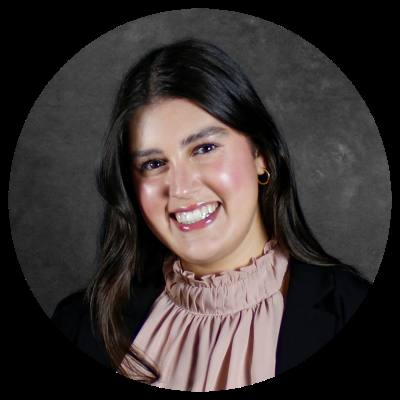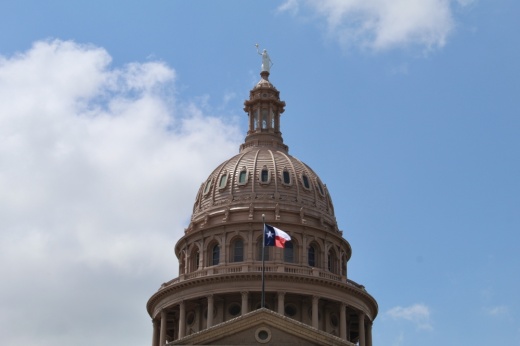The University of Texas System has closed 21 offices; eliminated 311 jobs; and canceled 681 DEI-related contracts, programs and trainings in response to Senate Bill 17, Chancellor J.B. Milliken told the Texas Senate Subcommittee on Higher Education.
Milliken estimated over $25 million “will be saved or reallocated to other university mission-related purposes” as a result of the changes.
Nearly 150 Texas students, professors, parents and others also testified during the hearing. Less than three weeks earlier, dozens of people were arrested during two pro-Palestinian protests at UT in Austin.
The committee will not immediately take action on the topics discussed May 14 but can make recommendations for next year’s legislative session.
The details
Leaders from seven public university systems spoke before the committee, assuring senators they were doing everything in their power to comply with SB 17. In March, committee chair Sen. Brandon Creighton, R-Conroe, sent a letter to university leaders, warning them that lawmakers could freeze state funding or take legal action if universities do not follow the law.
“Everybody understands this is the law—we're going to completely comply,” Milliken said. “The consequences are untenable if we don't, but that doesn't mean we're giving up on the access, the support.”
The Texas State University System spent under $3 million annually on DEI initiatives with 20 of the system’s 15,000 employees working directly in DEI, chancellor Brian McCall said.
“Since I became chancellor [in 2010]—not because of me, but in the timeframe that I've been able to measure—our total [student] headcount is up 27%; minority headcount is up 103%,” McCall said.
University leaders said they were focused on recruiting a diverse student body, increasing graduation rates and helping all students succeed.
“We have been supporting our diverse student body long before DEI became a focus for universities across the country,” University of Houston System Chancellor Renu Khator said.
Zooming in
Sen. Jose Menendez, D-San Antonio, said DEI programs have helped “level the playing field” for students from minority groups.
“How do we help those first-generation students, those low-income students, those students whose families don't have a history of going to college, that maybe need the help with the [Free Application for Federal Student Aid] form or help [with] the application in general?” Menendez asked. “All we want is a fair, level playing field. ... Sometimes we need directions to where the game is. And some folks, because their families have been in the game for a long time, they know where the stadium is, they know how to get there.”
At least 60 UT Austin staff members, many of whom worked in the now-shuttered Division of Campus and Community Engagement, were laid off April 2. UT Austin President Jay Hartzell said the cuts were needed to “reduce overlap ... and redirect resources into our fundamental activities of teaching and research,” while minority advocates accused the university of over-complying with SB 17.
During a May 14 press conference, UT Austin senior Lacey Reynolds said she doesn’t feel “as proud to say that I attend at this time.”
“Instead of celebrating diversity, [UT] has used their students, their faculty, their staff and their professors as political pawns,” Reynolds said. “We've had several students who are juniors and seniors in high school reach out to upperclassmen and students at the university, wondering if UT is a safe place.”

“Monarch is a program that is dedicated to supporting our immigrant students and had nothing to do with SB 17,” Moreno said. "However, it was claimed by UT legal that we did race-based programming, which is completely false. UT legal told me they made their decision by only looking at our Instagram page—they did not consult with me; they did not look up data.”
Opponents of SB 17 urged the committee to overturn it during the next legislative session or provide further clarification about the law’s requirements to “hold institutions accountable for overreach.”
Also of note
Following pro-Palestinian protests across the state and nation, Lt. Gov. Dan Patrick asked senators to review how Texas institutions have complied with SB 18. The 2019 law allows anyone to practice free speech in common outdoor areas at public universities, as long as they are not being disruptive or breaking the law.
UT Austin protestors have argued they were not violating university rules or state law, while officials said demonstrators were “combative,” blocked walkways and did not follow orders to disperse.
Sixty-one of the 134 people arrested during the late April protests at UT Austin were not affiliated with the university as students, faculty or staff, said Freeman Martin, a lieutenant colonel for the Texas Department of Public Safety. University leaders previously said the demonstrations were “orchestrated and led by those outside our university community.”
Martin testified police presence was heavier at UT Austin “than we were at the University of North Texas, UT Dallas, Texas Tech or UTSA, just based on intelligence that we had and their intention of wanting to take over and occupy and disrupt. It's our experience that overwhelming force allows us to use less force.”
Creighton lauded UT’s response to the protests, saying that “across the nation, we've seen an affront to democracy ... but not here in Texas.”
Creighton characterized the protests as “an effort to intimidate Jewish students and faculty,” and said demonstrators were aligned with Hamas—a federally designated terrorist group with over 20,000 members that is located in the Palestinian territories.
Levi Fox, a Jewish student invited to testify before the committee, said he has experienced anti-Jewish rhetoric on campus in recent months.
“A UT Austin professor walked up to me and other Jewish students and [said], I directly quote, ‘They'll come after you and put you in the ovens next,’” Fox said.
Fox declined to publicly share the professor’s name. He told the committee he reported the incident to the leaders of Longhorn Students for Israel, who then reported it to the university.
“When our students are becoming hateful to anyone, that's a problem,” Fox said. “But let me make one thing crystal clear: There will never be a time when I will be forced to hide my Judaism.”
In late 2023, 46% of Jewish students felt physically safe on their college campuses, and 33% felt emotionally safe, according to a study from the Anti-Defamation League, a Jewish advocacy group.
Sam Law, a UT Austin graduate student who was arrested during the April 29 protest, said he is “no stranger to antisemitism.”
“To hear about the firing of the DEI staff who protect the values that keep me safe as a Jew in this country—diversity, inclusion, religious tolerance—makes me feel unsafe as a Jew,” Law said.





